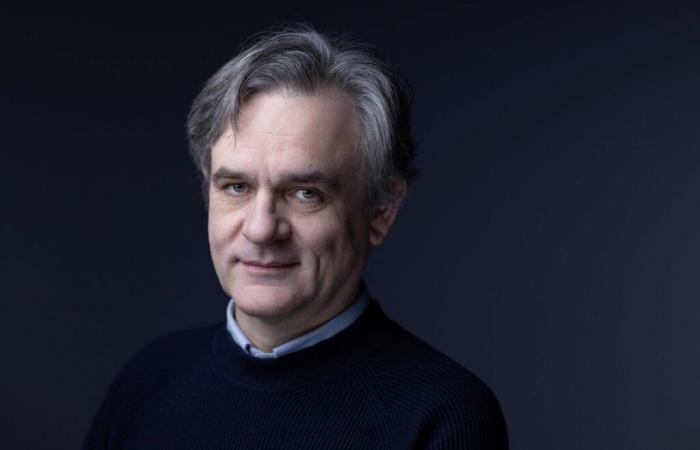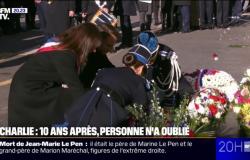“The desire to laugh will never disappear”says Riss, the publishing director of Charlie Hebdoin the special issue to be published Tuesday January 7, ten years to the day after the jihadist attack which left twelve dead, including eight members of the editorial staff, in Paris.
Also read the story | Article reserved for our subscribers “Charlie Hebdo” and Hyper Cacher attacks: three days of blood, terror and tears
Read later
In this special issue that Agence France-Presse was able to consult on Monday, the satirical newspaper says “indestructible! ». On the front page, a reader sitting on an assault rifle reads, delighted, what Charlie “historical” of 32 pages which includes four pages of caricatures of God sent by cartoonists from around the world.
Among these drawings, a mother and her child wander through a landscape of ruins and say to themselves that“one god, it’s okay, three, hello damage”a Christ on the cross is filmed on the phone, a designer wonders whether to draw “A guy drawing a guy drawing Mohammed, is that okay? ».
“Satire has a virtue that has helped us get through these tragic years: optimism. If we want to laugh, it’s because we want to live. Laughter, irony, caricature are manifestations of optimism. Whatever happens, whether dramatic or happy, the desire to laugh will never disappear.underlines Riss in the editorial which looks back over the last ten years, marked by a “geopolitical situation” who is “aggravated”.
Also read the interview | Article reserved for our subscribers Coco, cartoonist: “The attack against “Charlie Hebdo” continues to haunt me constantly”
Read later
Target of jihadist threats since 2006
“Today, the values of Charlie Hebdolike humor, satire, freedom of expression, ecology, secularism, feminism to name but a few, have never been so questioned. (…) Perhaps because it is democracy itself which finds itself threatened by renewed obscurantist forces.he explains.
On January 7, 2015, twelve people, including eight members of the editorial staff, lost their lives in the attack on the premises of the weekly by the Kouachi brothers, who had pledged allegiance to Al-Qaeda. Among the dead were the cartoonist Charb, as well as two legends of caricature in France, Cabu and Wolinski.
Charlie Hebdo was the target of jihadist threats since the publication of caricatures of the Prophet Muhammad in 2006. At the end of 2024, the newspaper relaunched an international competition on the theme #LaughingatGod: it received some 350 drawings and is publishing “the most efficient and successful”.
It also publishes the results of an IFOP study for the Jean-Jaurès Foundation carried out in June 2024 indicating that 76% of French people believe that “Freedom of expression is a fundamental right, [et que] freedom of caricature is one of them”.
Read also | Article reserved for our subscribers Press caricatures: “A certain fear weighs on cartoonists as well as newspaper editors”
Read later






